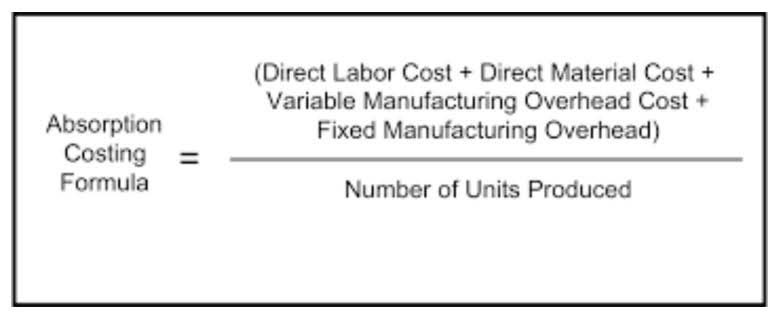¡Tu carrito está actualmente vacío!
How is the account Cash Short and Over used?

If the cash recorded in the register is higher than the physical cash in hand, it falls under cash short. The accounting for the cash over and short account is straightforward. It requires determining the difference between the value of monetary transactions recorded in the system with actual cash. As stated above, any discrepancy during this process goes into the cash over and short account.
Managing Cash Over and Short in Financial Practices
- Now cash is debited for $99, cash over and short is debited for $1, and the sales account is credited for $100.
- Inaccuracies in this stage may be due to rushed counts, distractions, or simple miscounts.
- The culmination of diligent cash management practices is often reflected in the audit process.
- Every time a register is short, the company’s expenses increase and profits decrease.
- For instance, employees on the sales floor might provide context about unusual customer interactions or system glitches that could have contributed to the discrepancy.
- By fostering a culture of continuous improvement and accountability, businesses can minimize the likelihood of cash handling errors.
- Let’s now assume that when the petty cash fund is replenished, there is $6.00 on hand and there are $93.00 of petty cash vouchers.
Moreover, employees who are well-trained and confident in their roles are less likely to make mistakes, contributing to a more secure and efficient cash management system. If the physical cash amount is higher than what appears on the cash drawer records, it falls under cash over. Once a discrepancy is detected, the next step is to reconcile the difference. This task typically falls to accounting personnel who must scrutinize transaction records, including sales receipts, refund documentation, and deposit records. They may also review surveillance footage or electronic transaction logs if available. The goal is to trace the origin of the discrepancy, whether it’s a simple cashier error or a more complex issue like misrecorded sales.
Helping Learn Accounting – Financial & Managerial

This collaborative approach can uncover patterns or practices that may not be immediately evident to the accounting department alone. For instance, employees on the sales floor might provide context about unusual customer interactions or system glitches that could have contributed to the discrepancy. This register includes all receipts from customers for over-the-counter sales. During closing the register, Red Co. counted its cash in the drawer, which amounted to $520. Explore effective strategies for handling cash discrepancies in finance, ensuring accuracy in audits, and enhancing internal cash management controls. The account Cash Short and Over provides a way to monitor employees’ cash handling proficiency.
Investigating Cash Discrepancies

It’s important to approach this inquiry with an open mind, considering all possible sources of error, from unintentional mistakes to deliberate acts of theft. Cash Over and Short account is also used for Petty Cash overages and shortages. In practice, this journal entry will also incorporate other aspects of the underlying transactions. Let’s take a look cash short and over is classified as a at an example of using the cash over and short account.
Claim $20 Off PRO Plus
Accruing tax liabilities in accounting involves recognizing and recording taxes that a company owes but has not yet paid. This is important for accurate financial reporting and compliance with… When a cash discrepancy arises, a thorough investigation is imperative to unearth the root cause and prevent recurrence. The initial focus real estate cash flow typically centers on the most recent transactions, as these are often where errors occur.
Human error is a frequent contributor, with cashiers sometimes entering incorrect amounts into registers or giving improper change. This is particularly common in high-volume sales environments where the pace of transactions can lead to oversights. Additionally, misinterpretation of currency denominations, especially in countries with similar-looking banknotes or coins, can result in cash drawer imbalances. Beyond the counter, discrepancies can arise during the cash counting process. Inaccuracies in this stage may be due to rushed counts, distractions, or simple miscounts.

These practices can either provide a temporary solution or a permanent resolution to past cash discrepancies. Usually, companies record these amounts the cash over and short accounts. Most retailers’ accounting systems have a cash over short account setup petty cash because they generally deal with cash sales everyday.
- Regular audits and surprise cash counts also play a crucial role in maintaining the accuracy of cash management.
- During closing the register, Red Co. counted its cash in the drawer, which amounted to $520.
- The ability to accurately track and handle cash transactions directly impacts the integrity of a company’s financial statements and its overall fiscal health.
- Usually, companies record these amounts the cash over and short accounts.
- If the cash recorded in the register is higher than the physical cash in hand, it falls under cash short.
- It involves the difference between the value of cash transactions in the register versus the actual physical cash.
Company
A key component of this framework is the segregation of duties, which ensures that no single individual has control over all aspects of a financial transaction. This division of responsibilities reduces the risk of errors going undetected and deters fraudulent activities. Cash management is a critical aspect of financial operations for any business.
What is the accounting and journal entry for Cash Over and Short Account?
These discrepancies are not just numerical errors; they have real implications for businesses. They can affect trust with stakeholders, lead to potential losses, and even expose a company to fraud. Addressing these variances promptly ensures transparency and maintains the robustness of financial practices. For the past 52 years, Harold Averkamp (CPA, MBA) hasworked as an accounting supervisor, manager, consultant, university instructor, and innovator in teaching accounting online. For the past 52 years, Harold Averkamp (CPA, MBA) has worked as an accounting supervisor, manager, consultant, university instructor, and innovator in teaching accounting online.

Deja una respuesta